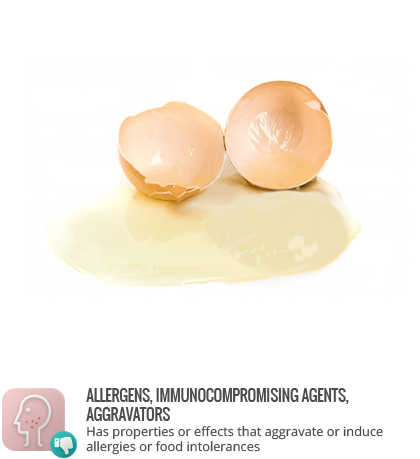Egg whites
Definition
Egg whites, otherwise known as albumen, are the clear liquid portion of an egg that surrounds the yellow yolk. Due to their ability to create a foam when whipped, this portion of the egg is often used in baking that requires a light and fluffy product. Egg whites are also high in protein with respect to their caloric content and are thus often consumed for muscle-building purposes.
Health considerations
Egg allergies (which affect 1.3% of North American children and 0.2% of adults) are often caused by proteins found in the egg white, including ovomucoid, ovalbumin, ovotransferrin, and lysozyme. Versions of these proteins can be found in the eggs of many bird (chicken, duck, quail, turkey and ostrich, for example) and fish species, though the cross-reaction of fish roe with bird’s egg allergens is rare. Otherwise, egg whites provide a very clean protein source for those trying to add muscle without consuming too many calories. This protein source also contains no cholesterol.
Keep in mind
Aside from egg-containing foods, individuals allergic to chicken eggs should also be cautious of flu vaccines as chicken eggs are used in the production of flu vaccine.
May be found in
Cakes, cookies, cream-filled pies, meringues, whips, custard, pudding, ice cream, sherbet, commercially prepared pancakes, waffles, donuts, soda crackers, bread crumbs, and pretzels, egg noodles or pasta, baking mixes, fritter batter or batter-fried foods, french toast, fried rice containing eggs
References
Pediatric Clinics of North America
The Canadian Society of Allergy and Clinical Immunology
Allergy in Practice
Allergy: European Journal of Allergy and Clinical Immunology
Alternative Spellings and Names
Egg albumen


